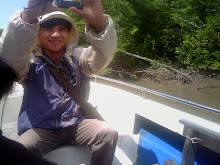Abraham Lincoln is known for many things. He led the nation through
the Civil War, emancipated the slaves and delivered eloquent speeches
about democracy and liberty. But Lincoln's religious views have long
been a matter of debate.
Now, a newly resurfaced letter from the 19th century is raising
questions once again about the 16th president's relationship with God.
The three-page letter, which was written by Lincoln's old law partner,
William Herndon, and just went up for sale for a price of $35,000,
claims that Honest Abe was driven not by faith, but by politics.
Lincoln's attitude toward religion was clearly complex, and the
discussion is far from over, as some evidence suggests that Lincoln's
sense of faith evolved and deepened throughout the war and his
presidency. Still, the letter offers a rare view of Lincoln's inner life
from someone who knew him before he went to Washington.
"Mr. Lincoln's religion is too well known to me to allow of even a
shadow of a doubt; he is or was a Theist & a Rationalist, denying
all extraordinary -- supernatural inspiration or revelation," Herndon
wrote in the letter, signed Feb. 4, 1866, a year after Lincoln's
assassination.
"At one time in his life, to say the least, he was an elevated
Pantheist, doubting the immortality of the soul as the Christian world
understands that term," continued the letter, addressed to Edward
McPherson, Clerk of the U.S. House of Representatives. "I love Mr.
Lincoln dearly, almost worship him, but that can't blind me. He's the
purest politician I ever saw, and the justest man."
Born in a log cabin in Kentucky in 1809, Lincoln was raised as a
Baptist but rejected organized religion and never joined a congregation
as an adult. After trying out a variety of careers, including postmaster
and surveyor, he taught himself to be a lawyer and moved to Illinois,
where he eventually partnered with Herndon in 1844. The two remained
close until 1861, when Lincoln left to begin his presidency.
Twenty years later, immediately after Lincoln's death in 1865, a
flurry of biographies emerged, many of them attempting to Christianize
Lincoln, said historian Ronald White, author of A. Lincoln: A Biography. Herndon wanted to set the record straight.
So, he embarked on a journey to collect oral histories about the real
Lincoln, which would eventually lead to another biography, published
years later with help from a collaborator. Herndon's letter to Congress
was part of that effort.
"People debate Lincoln's religion today. It is often invoked in
public debate and there is also active debate among scholars," said
Nathan Raab, vice president of the Raab Collection, which acquired the
letter from a very old private collection and put it up for sale this
week. "This letter brings that debate into the foreground."
Herndon's personal experience with Lincoln was limited to his
pre-presidential period, when religion was completely absent from his
life. After Lincoln left for the White House, the two never met up
again.
But the challenges of a presidency, the angst of the Civil War and
the 1862 death of his 11-year-old son would push Lincoln to consider God
in ways he never had before, said White, who added that religion is
something most Lincoln biographers have skimmed over.
Lincoln's second inaugural address points to his eventual embrace of
religion in midlife, White said. The speech, which was just 701 words
long, mentions God 14 times and quotes the Bible four times, with two
references to the Old Testament and two to the New Testament. In
comparison, there were zero biblical references in his first inaugural
and just one Bible quote in all previous inaugural addresses combined.
After his son's death, Lincoln also developed a strong relationship
with a Presbyterian minister named Phineas Densmore Gurley. And after
his own death in 1865, Lincoln's secretary John Hay found an untitled
and undated document in Lincoln's desk that both questioned God's
presence in the midst of the Civil War and offered affirmation that God
was somehow a silent actor in the war. Hay called it: Meditation on the Divine Will.
"I'm arguing that Lincoln went on a remarkable faith journey that
moves forward quickly and matures during his four years as president,"
White said. "He was not just dropping phrases from the Bible. In both
the second inaugural and the Meditation on the Divine Will, he was dealing at a very deep level with profound religious questions."
The rediscovered letter is undoubtedly an important document about an
important historical figure, experts said. It isn't necessarily earth
shattering, but it adds depth to our knowledge of Lincoln's personal
life.
"It confirms what Herndon wrote in his letters and his essay on
Lincoln's religion, so we are not exactly discovering something new or
scandalous," said Allen Guelzo, a historian at Gettysburg College in
Penn., and author of Lincoln's Emancipation Proclamation: The End of Slavery in America.
"But it is certainly a great letter, and puts into one long paragraph
much of what Herndon would say about Lincoln's religion in the coming
years."
Vo Minh Tap (Collectibles)












